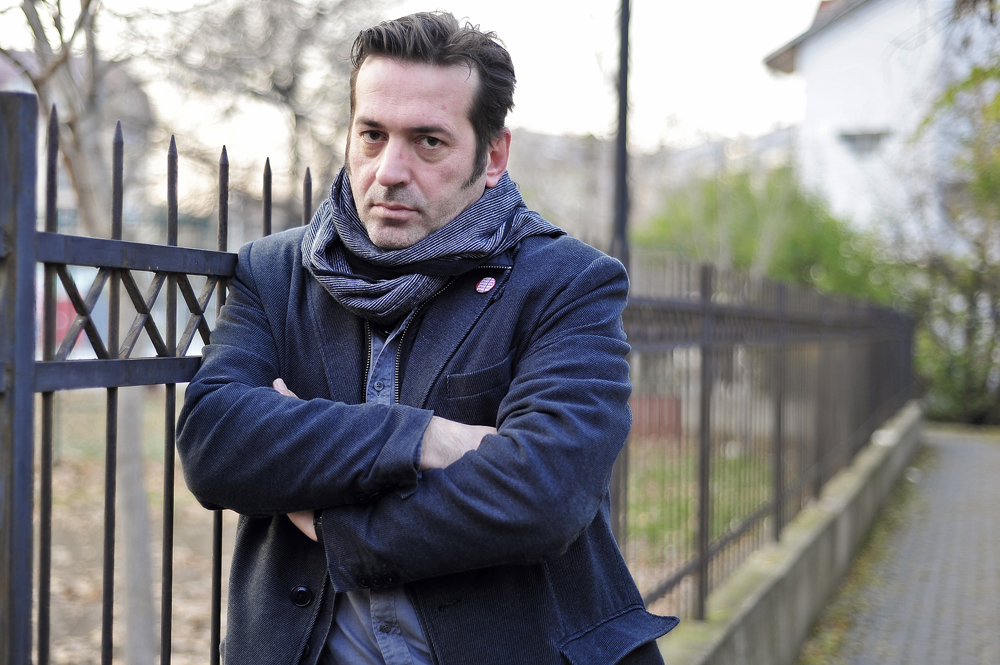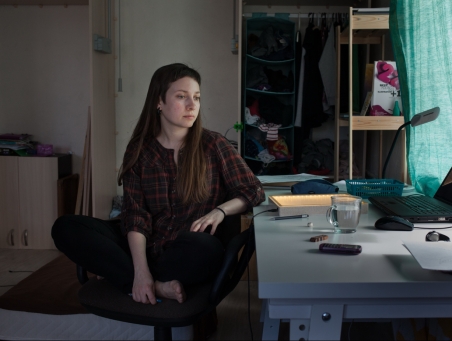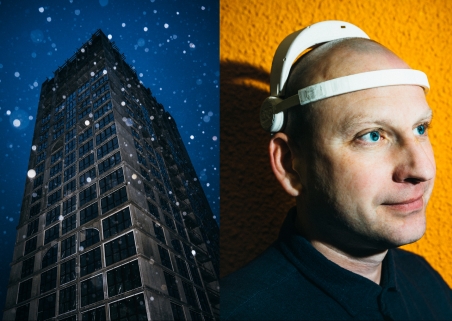High time to reset the system

After nine years of disastrous rule of the government ruled by Nikola Gruevski, who is the leader of VMRO-DPMNE (Internal Macedonian Revolutionary Organization – Democratic Party for Macedonian National Unity), the Republic of Macedonia finds itself on the brinks of chaos. Gruevski’s government has captured the state institutions, including the parliament, regulatory bodies and other democratic control mechanisms, and has practically privatized the police and the entire judiciary. Merely all sectors of the local and central government, business and economy, society and media, are under control of a small group of people who are connected in close relations as family and friends.
Media are almost entirely under control of the government. A small group of people that have close business or political ties with Gruevski and his family and friends have corrupted or bought most of the national and local TV and radio broadcasters, newspapers and internet portals. The few remaining independent media are under constant pressure, facing daily condemnation and labeling, as well as extremely high fines in absurd lawsuits within the corrupt and controlled judiciary.
The journalist Tomislav Kezarovski was imprisoned for two years for his critical writing. The founder and editor of the independent weekly Fokus, Nikola Mladenov, died in a car crash in 2013 under very dubious circumstances. Many other journalists are pressured in various ways. Macedonia has never been so low in the Press Freedom Index of the Reporters without Borders, occupying the 123rd place, out of 180 countries listed in the Index.
Activists under pressure
Civil society is in a very similar situation as the media in the country. Human rights activists are under daily public pressure, being labeled in government controlled media as spies and foreign agents, mercenaries, traitors, perverts, evil beings, idiots, etc. On the other hand, the government has created hundreds of NGOs to substitute the genuine civil society and promote conservative values, as well as to produce phony reports from their false monitoring of the elections and “successes of the democratic government”.
Macedonia has gone through eight electoral processes since Gruevski’s government took power in June, 2006, an average of one electoral process per year, out of which three pre-term parliamentary elections. The pre-term parliamentary elections were called by the government itself, winning more power and constituting, more or less, the same government every time.
The country is in continuous political crisis, culminating with the violent ousting of opposition MPs and journalists on December 24, 2012, by the special police force.
In December, 2014, students started what we called “spring in December”. They rose against ridiculous reforms in the education system, reducing the autonomy of the universities. The protests were genuine and grass-root based, setting a great example to the rest of the society. They were followed by the high-school students’ protests. Already then, it became obvious that Macedonia heading towards political turmoil.
Parlament does not function anymore
The political situation worsened even more after the latest political “bombs” of the opposition revealing that more about 26,000 citizens have been illegally wiretapped in an operation ordered by Prime Minister Nikola Gruevski and Saso Mijalkov, the head of the State Security Service. They wire-tapped the political opposition leaders and activists, journalists, civil society leaders, business persons, foreign ambassadors and diplomats, and many others, as well as their closest allies in the government.
The parliament is practically non-functional, due to the boycott of the opposition since the end of the parliamentary elections in April, 2014, denying the electoral results. Still, it produces dozens of laws per week, creating a legal maze of regulations, often violating basic human rights and legitimizing the transgressive conduct of the government.
Elections in the country are conducted in circumstances of highly politicized institutions, controlled media and interethnic tensions. Voters in the country are subject to harsh political pressure and manipulation in the context of elections for a number of years. According to the researches of Civil – Center for Freedom, fear and insecurity among citizens is widespread, as well as policies and practices of discrimination and violation of human rights, including voting rights. The analysis of the electoral processes in the country in the last several years, indicate that these processes are widely fraudulent, leading to the conclusion that the elected representatives in the parliament, municipalities, as well as the president of the country lack legitimacy. The revelation of the wiretapped conversation by the opposition only represented a bitter confirmation of the previous findings of Civil and other relevant watchdog organizations and observers in the country and abroad.
Governement wants to turn crisis into an inter-ethnic conflict
After the revelation of the clear attempt to cover-up the brutal murder of a young person by a special police force officer on the night of the electoral victory of Gruevski in 2011, a large number of protesters took the streets on May 5. Police responded with excessive force, arrested several and ill-treated a large number of protesters on the streets. Protests continued to grow in the wake of the protest by the opposition and over 80 organizations who formed the Citizens for Macedonia coalition which carries one single message: resignation of Gruevski’s government. Just ahead of the protests, a neighborhood in Kumanovo was a subject to a so-called two-day war between the special police and an armed group of ethnic Albanians. The operation took the lives of eight police officers, wounded 37 of them, 10 members of an armed group were killed, 26 of them surrendered, dozens of houses were demolished.
An unknown number of civilians were caught in a cross-fire for over 12 hours and ill-treated in a highly problematic operation of extraction, according to testimonies of the inhabitants of the neighborhood. According to numerous independent analysts and experts, this operation was a clear attempt of the government to divert the domestic and international attention from the corruption mega-scandal and political crisis and turn it into an inter-ethnic conflict in order to impose new dynamics to the crisis in which the Gruevski-led government will lead the initiative of trouble-shooters.
The long-divided ethnic communities of Macedonians, Albanians and others, united instead. The protests of the united opposition and civil society organizations on May 17, which gathered up to 100,000 protesters, displayed national and ethnic unity as never seen in the country. The Gruevski’s party organized a counter-protest, ordering to the public administration personnel to fill the specially fenced area in front of the parliament the day after. Despite all pressures and aggressive media propaganda, not more than 30,000 supporters of Gruevski showed up at the rally.
The country now remains insecure and tense. Both protesters against the rule of Gruevski and his supporters set camps few hundred meters away from each other.
The EU wants stability rather than democracy
For nine years, the EU remained silent or issued rather pale reports and warning to the government in Skopje, choosing stability over democracy. It turned a blind eye to the warnings and appeals by national and international human rights organizations and press. Seems that the EU bureaucracy was deaf even to the warnings of its own special envoy, the previous EU ambassador Erwan Fouéré and several ambassadors of EU countries, particularly the German diplomatic representatives in Macedonia. Their words and standpoints are being repeated only recently by the EU apparatus, after realizing that lack of democracy and justice destroys stability.
After years of complete absence of political dialogue, continuous violation of human rights, structural violence, ethnic tensions, severe breach of democratic standards and the rule of law, and electoral frauds, it is time to rebuild Macedonia’s democratic institutions and reset the system. That will be impossible if Gruevski and his coalition partners in the government escape political and legal responsibility for the immense transgressions committed in the past several years. Ethnic tensions will rise, political culture will fall, and the country will remain instable, unless serious changes are made. Citizens of Macedonia made a giant step from apathy to a peaceful resistance against the dictatorial conduct of Gruevski’s government. It’s time for Europe to act now.

